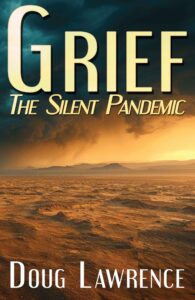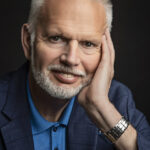
Author Doug Lawrence is chatting with me about his self-help grief book, Grief – The Silent Pandemic.
Bio:
Doug Lawrence is the founder of TalentC® and is focused on all things mentoring as a solution provider. Doug Lawrence is an International Certified Mentor and holds two Mentor Certifications; Certificate of Practice – Mentor and the Certificate of Practice – Journey Mentor from the International Mentoring Community. Doug is the only one to hold the Certificate of Practice – Journey Mentor in the world.
He has over 30 years of mentoring and leadership experience and is recognized as a thought leader in the mentoring space. Doug authored the book entitled, “The Gift of Mentoring” and his second book entitled, “You Are Not Alone” became an Amazon #1 Best Seller in North America and the UK and is a Bronze medal recipient in the Global Book Awards. Doug is an International Best – Selling Author.
Doug’s Practice of Mentoring continues to grow and has resulted in his accumulation of 3,400 hours of mentoring (in person and virtual), 235 hours of speaking opportunities and 672 hours teaching others how to effectively mentor. Doug has been the guest on approximately 160 podcasts in the past year on the topics of mentoring, mental health and grief.
Doug works as a volunteer mentor with the Sir Richard Branson Entrepreneur Program in the Caribbean and with American Corporate Partners (ACP) in the United States helping military personnel transition from service life to civilian life.
Welcome, Doug. Please tell us about your current release.
My current release focuses on how mentoring can help with the healing journey that we take when dealing with the loss of a loved one. Drawing on my lived experience and sharing that with others is a way for us to not only continue our healing therapeutically but help others as well. I break down the grieving process and provide guidance in how we can help ourselves and others.
What inspired you to write this book?
It is a continuance of my 2nd book, You Are Not Alone. The biggest inspiration came from the loss of my wife in 2021 to cancer and the different ways that I deal with that. I became involved in support groups and helping others. There is a need for people to reach out and say “I need help” and to know that help is there. No one should walk by themselves.

What exciting project are you working on next?
I had made a commitment to write a book a year. How that will evolve will be after we have published this book and determined where the need is for telling another story
When did you first consider yourself a writer?
I think there is always room to grow as a writer. It started to sink in when I was referred to as an international best-selling author. I never thought that would be something I would say about myself. Here we are.
Do you write full-time? If so, what’s your workday like? If not, what do you do other than write and how do you find time to write?
I don’t write full time. If I am working on a book I would devote more time to writing. I am very involved in helping others with their grief journey and I do lots of mentoring on an international level. I also help those that are struggling with mental health (PTSD).
What would you say is your interesting writing quirk?
I have taken over my dining room table as my sort of office. My inspiration comes from a large photo of my wife Debra on the table. I would be lost without her support spiritually.
As a child, what did you want to be when you grew up?
I wanted to become a police officer. I joined the Royal Canadian Mounted Police in 1974 and served for 25 years retiring in 1999. I ended up with PTSD as a result of the trauma that I dealt with.
